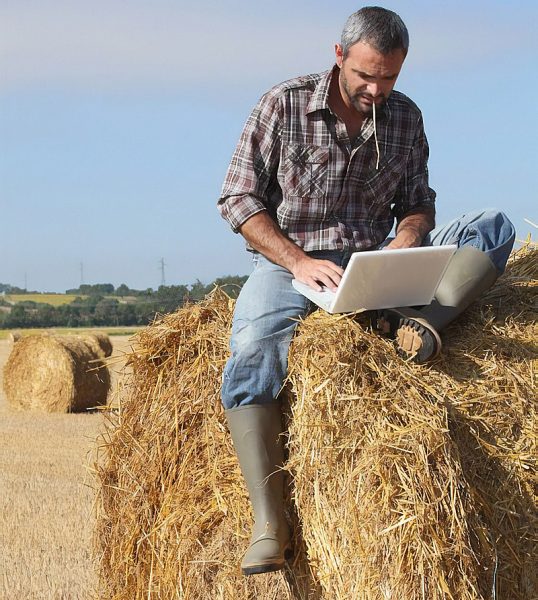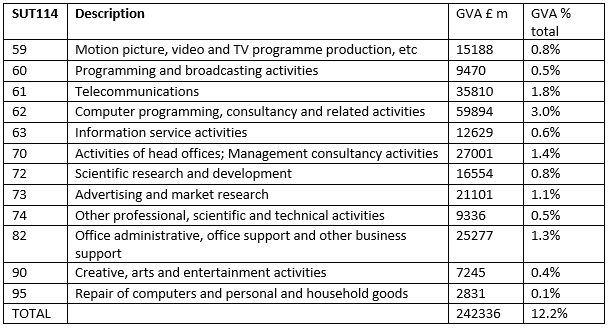Full Fibre Broadband to Help Create 1.2 Million UK Jobs by 2025

The Centre for Economics & Business Research (CEBR) has updated their research to account for the impact of the “full fibre” broadband roll-out and more people working from home post-COVID19, which now assumes that 25% of the workforce could be working from home by 2025 and this may help to create 1.2 million jobs.
The original research was commissioned by Openreach (BT) and published last October 2019 (here). Broadly speaking that study estimated that connecting the whole of the UK to a Fibre-to-the-Premises (FTTP) broadband ISP network by the end of 2025 could cost £33.4bn (National Infrastructure Commission) but result in a £59bn economic boost, part of which would come from more people being able to work from home.
The CEBR estimated that full fibre deployment on its own could boost working from home by just over a million additional people, taking the share working more than 2 days a week from home in England and Wales up from 11.9% to 16.2%. But as a result of the COVID-19 crisis the organisation now believes that, come 2025, we might have about a quarter (25% or 6 million people) of the workforce working from home on any day.
Advertisement
“As an investment case it looks a no brainer, particularly as most of the investment will be paid for by the private sector, though I should declare an interest since Cebr has been employed by Openreach to research this,” said study author Douglas McWilliams.
Douglas McWilliams, CEBR, said:
“We estimate that this would cause the Flat White Economy to grow from £240 billion in 2019 to £430 billion in 2025, rising from 12.2% of GVA to 17.8%. Conservatively this could generate 1.2 million new jobs in the sector and around double that number in total once knock on effects are taken into account.”
At this point it’s worth explaining what Douglas means by the “Flat White Economy“, which is less a type of coffee and more a reflection of various digital based sectors. You can see below how the original forecast of 12.2% in Gross Value Added (GVA) has been created, although sadly the CEBR didn’t include an updated table for the revised figure of 17.8%.
The number of digitally based sectors has increased and the previous estimate for its size in 2019, using ONS statistics, was 12.2% of GVA (up from 7.6% in 2012) – making it comfortably “Britain’s biggest economic sector“, larger than manufacturing (9.6%), Finance (6.6%) Construction (6.2%) and Retail (5.2%). And it is still growing roughly twice as fast as the economy.
The GVA of the Flat White Economy in 2019
Advertisement

However the CEBR warns that taxes and regulations need to be such that they don’t discourage the UK from “continuing to be Europe’s digital centre.” A permissive immigration policy post-Brexit is also needed to ensure that telecoms operators can still access enough skilled labour (at present there’s a fair bit of strain in terms of finding enough skilled UK fibre engineers to build these new networks).
On the other hand we should warn that accurately gauging the economic impact of deploying faster broadband connectivity is notoriously difficult, not least since most businesses and consumers won’t be starting from a point of zero broadband connectivity. Faster speeds also tend to produce diminishing returns in terms of their economic impact, although some jobs like graphic design and broadcasting may benefit more than others.
Nevertheless a big reason for the change in remote working is that COVID-19 has forced many businesses to adapt to a different way of doing things, which when done properly can also be cheaper and more efficient. The CEBR are therefore tuning into the fact that, going forward, there will be a greater acceptance of working from home (i.e. it will become more common). Full fibre will help that.
Advertisement
Admittedly the focus on full fibre here is perhaps a bit too simplistic, since it also ignores the potential impact of things like ultrafast 5G mobile and Virgin Media’s deployment of 1Gbps capable DOCSIS 3.1 technology.
Mark is a professional technology writer, IT consultant and computer engineer from Dorset (England), he also founded ISPreview in 1999 and enjoys analysing the latest telecoms and broadband developments. Find me on X (Twitter), Mastodon, Facebook, BlueSky, Threads.net and Linkedin.
« Cityfibre Start £45m Derby UK 1Gbps FTTH Broadband Rollout






















































People with >30M, which is 95%, could probably work from home now, as do many.
So what is your point? The CEBR has been employed by Openreach to research this.
If you disagree, then say so, and tell us why think they are wrong!
How many are prevented from working from home by a lack of full fibre broadband would be useful to know?
I was talking to a college lecturer friend of mine today. Her college, mainly for the less academic aged 16-19, completely closed since March and everyone has to work from home. Problem is, some students are sharing laptops with others in their household and some don’t even have access to a laptop at all.
Mobile broadband works fine. I get about 10 meg, which I admit is rubbish.
I work in telecoms, my partner works in the NHS and my daughter does her school stuff, no issues at all.
In my case, FTTP/C is not necessary.
@Thefacts 10-11% of the rural 6m remain outstanding and the BDUK site is saying what was once a rural upgrade ‘superfast’ will continue to 2026. Most of these will be full fibre.
The £778m in BT Groups books -referenced in the KPI’s as a capital deferral should be enough to complete another 600k in rural England if this work can be contracted, perhaps by region.
The impact of Covid19 is likely to mean the £5bn will disappear (imho) and new focus brought back on reconciling the works started in 2012, hence what I think is a new 2026 date on BDUK’s website.
Openeach will need to be incentivised in the cost recovery processes where shareholders will need to see the benefits of operational costs savings get converted to dividends. Re-running GVA analysis previously run for FTTC is a bit wishful.
In terms of full fibre 2040-45 will be the new 2025 post Covid19.
The lack of Full fibre doesn’t stop people working from home – but the lack of decent broadband does, and there are actually still a lot of areas that don’t have superfast broadband. For example the Forest of Dean still has 15% of properties with no access to superfast broadband, and that isn’t going to change for some years…
@TheFacts: Your question shows that you don’t fully understand the issue. Have you even read the article, or the CEBR?
@GN = understand completely.
xxx
@TheFacts: So why not share your insights with others here? You obviously disagree with the CEBR. So rather than being sarcastic all the time, tell users here why you have come a different conclusion. For a start, why you’d consider 30M sufficient!
@GN – slow response there, you must try harder.
As discussed by others full fibre is not necessary for all home working.
xxx
@TheFacts: Many will disagree with you, especially since you are unable to back up your claims on the ISPReview forum threads. As has been pointed out to you, your silly questions don’t contribute to this forum.